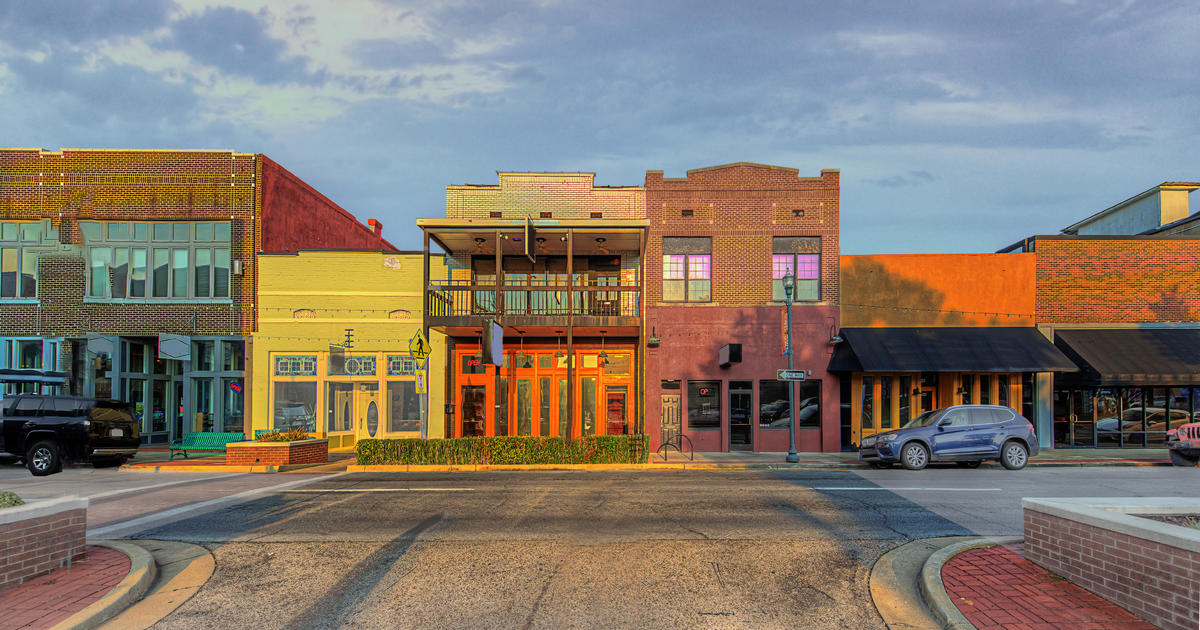CBS News
14 states are cutting individual income taxes in 2024. Here are where taxpayers are getting a break.

Taxpayers in 14 states could get some financial relief this year thanks to lower individual tax rates enacted in 2024, according to an analysis from the Tax Foundation, a think tank that focuses on taxes.
The reductions represent a continuation of “tax cut fever,” as termed by the left-leaning Institute on Taxation and Economic Policy (ITEP). The drive to cut state taxes began during the pandemic when many states found themselves flush with tax revenue. With coffers fat, lawmakers sought to provide some relief to their constituents, typically through tax rebates or rate reductions.
The states that are reducing taxes in 2024 tend to be controlled by Republican lawmakers, although there are some Democratic-controlled states that are also jumping on the tax cut bandwagon. Connecticut, for one, is reducing its tax rates for low- and middle-income residents, while keeping its highest marginal rate unchanged.
Lowering tax rates can help make a state more competitive, potentially drawing remote workers and businesses within their borders, noted Manish Bhatt, senior policy analyst with the Center for State Tax Policy at the Tax Foundation.
“The last few years have been incredibly fast-paced in the world of tax rate cuts, and they are to find a competitive edge over either neighboring states or around the country,” Bhatt told CBS MoneyWatch.
That logic begs the question of whether people and businesses are incentivized to move in pursuit of lower tax rates. The evidence is mixed: While some researchers have found that Americans shifted to low-tax states in recent years, it could be that some of those taxpayers moved because they were in search of a new job, better weather or lower housing costs.
Other research has found little evidence that lower tax rates drive migration. For instance, even if people move to lower-tax states, they are often replaced in their higher-tax states by new people moving in, noted the Center on Budget and Policy Priorities in a 2023 research paper.
Red state tax cuts
Many of the tax cuts will benefit the states’ richest residents, with 12 of the 14 states reducing their top marginal rate, or the tax rate that impacts their highest earners.
Take Arkansas, which is reducing its top marginal rate to 4.4% in 2024, from 4.7% last year. To be sure, the top marginal rate applies to any taxpayer earning more than $24,300, or about 1.1 million residents — a broad base of low-, middle- and high-income earners, according to the Arkansas Advocate.
But about 70% of the tax cut’s benefit will be enjoyed by the 20% richest households in the state, or those earning more than $264,000 annually, the newspaper noted, citing data from ITEP.
In the eyes of Arkansas Governor Sarah Huckabee Sanders, the cut will help draw people to the state. If you are “a young family looking for a new place to settle down, moving to Arkansas has never been better,” Sanders said when signing the bill to lower tax rates last year, the Arkansas Advocate reported.
There are also longer-term issues that could tarnish the allure of tax cuts. For instance, these tax-cutting states could face a financial pinch when a recession hits — which could lead to hits to essential services, from education to road maintenance.
One such example of a tax cut that backfired occurred in Kansas over a decade ago. In 2012, state lawmakers cut income tax rates for top earners by almost one-third and reduced some business taxes to zero. The idea was that lower taxes would kickstart economic growth.
Instead, the state was forced to slash spending on services, including education, and the state actually underperformed neighboring states economically. Eventually, the tax cuts were reversed.
CBS News
North Dakota Badlands national monument proposed with tribes’ support

A coalition of conservation groups and Native American tribal citizens on Friday called on President Joe Biden to designate nearly 140,000 acres of rugged, scenic Badlands as North Dakota’s first national monument, a proposal several tribal nations say would preserve the area’s indigenous and cultural heritage.
The proposed Maah Daah Hey National Monument would encompass 11 noncontiguous, newly designated units totaling 139,729 acres in the Little Missouri National Grassland. The proposed units would hug the popular recreation trail of the same name and neighbor Theodore Roosevelt National Park, named for the 26th president who ranched and roamed in the Badlands as a young man in the 1880s.
“When you tell the story of landscape, you have to tell the story of people,” said Michael Barthelemy, an enrolled member of the Mandan, Hidatsa and Arikara Nation and director of Native American studies at Nueta Hidatsa Sahnish College. “You have to tell the story of the people that first inhabited those places and the symbiotic relationship between the people and the landscape, how the people worked to shape the land and how the land worked to shape the people.”
The U.S. Forest Service would manage the proposed monument. The National Park Service oversees many national monuments, which are similar to national parks and usually designated by the president to protect the landscape’s features.
Supporters have traveled twice to Washington to meet with White House, Interior Department, Forest Service and Department of Agriculture officials. But the effort faces an uphill battle with less than two months remaining in Biden’s term and potential headwinds in President-elect Trump’s incoming administration.
If unsuccessful, the group would turn to the Trump administration “because we believe this is a good idea regardless of who’s president,” Dakota Resource Council Executive Director Scott Skokos said.
Dozens if not hundreds of oil and natural gas wells dot the landscape where the proposed monument would span, according to the supporters’ map. But the proposed units have no oil and gas leases, private inholdings or surface occupancy, and no grazing leases would be removed, said North Dakota Wildlife Federation Executive Director John Bradley.
The proposal is supported by the MHA Nation, the Spirit Lake Tribe and the Standing Rock Sioux Tribe through council resolutions.
If created, the monument would help tribal citizens stay connected to their identity, said Democratic state Rep. Lisa Finley-DeVille, an MHA Nation enrolled member.
North Dakota Gov. Doug Burgum is Trump’s pick to lead the Interior Department, which oversees the National Park Service. In a written statement, Burgum said: “North Dakota is proof that we can protect our precious parks, cultural heritage and natural resources AND responsibly develop our vast energy resources.”
North Dakota Sen. John Hoeven’s office said Friday was the first they had heard of the proposal, “but any effort that would make it harder for ranchers to operate and that could restrict multiple use, including energy development, is going to raise concerns with Senator Hoeven.”
CBS News
New Mexico city reaches $20 million settlement in death of woman fatally shot by officer

A city in New Mexico has reached a $20 million settlement with the family of a woman who was shot and killed by a police officer now charged with second-degree murder.
Teresa Gomez, 45, was fatally shot in October 2023 shortly after a Las Cruces police officer on a bicycle approached her while she sat in a parked car with another person, authorities said. Body camera video shows the officer shot Gomez three times as she tried to drive away.
The officer, identified by the city as Felipe Hernandez, was charged in January and fired months later from the Las Cruces Police Department.
“This settlement should be understood as a statement of the City’s profound feeling of loss for the death of Gomez and of the City’s condolences to her family,” the city of Las Cruces said in a news release sent Friday.
Hernandez has pleaded not guilty to the murder charge. His trial is scheduled for June 2. The Associated Press sent an email Saturday seeking comment from Hernandez’s attorney.
A lawyer for the Gomez family said her relatives are grateful to the city “for recognizing the injustice of Teresa’s death,” the Las Cruces Sun-News reported.
“They trust that the city will redouble efforts to make sure no other family suffers the tragedy of losing a loved one to abusive police conduct,” Shannon Kennedy said in a statement to the newspaper.
CBS News
11/23: Saturday Morning – CBS News

Watch CBS News
Be the first to know
Get browser notifications for breaking news, live events, and exclusive reporting.









